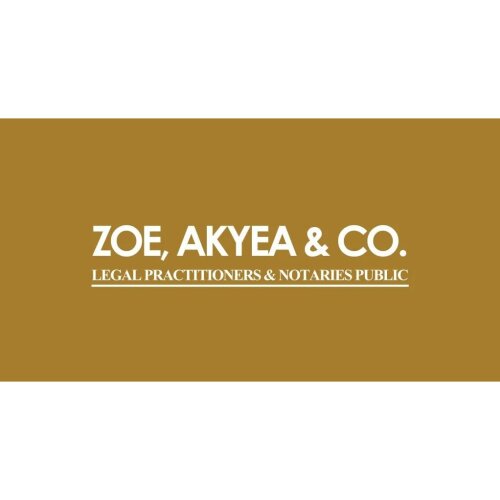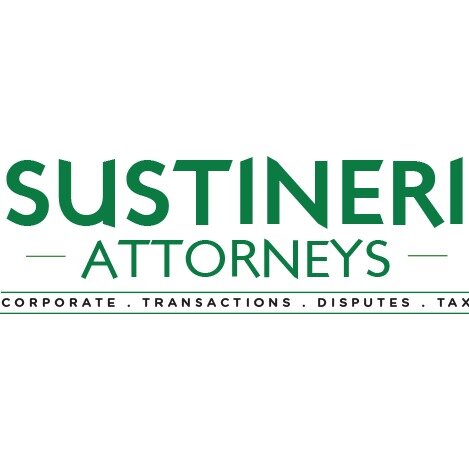Best Climate Change Law Lawyers in Accra
Share your needs with us, get contacted by law firms.
Free. Takes 2 min.
List of the best lawyers in Accra, Ghana
About Climate Change Law in Accra, Ghana
Climate Change Law in Accra, Ghana refers to the body of legal norms, policies, and regulations aimed at addressing the causes and effects of climate change within the city and the country at large. These laws cover a wide array of issues including greenhouse gas emissions, environmental protection, adaptation and mitigation efforts, waste management, and sustainable resource utilization. Accra, being the capital and a major urban center, faces unique climate challenges such as increased flooding, rising temperatures, and threats to infrastructure. The government, in partnership with international organizations, has taken several steps to incorporate climate considerations into its legal framework to promote resilience and environmental sustainability.
Why You May Need a Lawyer
There are several reasons why individuals and businesses in Accra may require legal assistance concerning Climate Change Law:
- If you or your business are accused of violating local environmental regulations, such as illegal dumping or excessive emissions.
- You need to navigate compliance with newly introduced climate-related policies or obtain permits for sustainable construction and development.
- You are involved in land use or property development and must adhere to climate adaptation mandates, like flood mitigation requirements or coastal management rules.
- Disputes arise over access to clean energy resources or water amidst changing climate patterns.
- You are seeking funding or support for a climate change project and require help understanding legal incentives or partnership terms.
- You are impacted by environmental harm and wish to understand your rights or pursue compensation for losses caused by climate-related events.
Local Laws Overview
Ghana’s Climate Change Law framework consists of several key acts, policies, and guidelines relevant to Accra:
- Environmental Protection Agency Act, 1994 (Act 490): Establishes the EPA as the main regulatory authority, with power to enforce climate and environmental standards.
- National Climate Change Policy: Outlines Ghana’s national approach to climate change mitigation and adaptation, focusing on agriculture, energy, health, and infrastructure.
- Renewable Energy Act, 2011 (Act 832): Promotes the use of renewable energy sources and provides a legal basis for transitioning away from fossil fuels.
- Building Codes and Urban Planning Laws: Incorporate specific provisions for flood control, green building practices, and urban greening in line with climate resilience goals.
- Waste Management Regulations: Set standards for reducing landfill use, encouraging recycling, and limiting pollution to protect the urban environment.
- International Commitments: Ghana is a party to international treaties such as the United Nations Framework Convention on Climate Change (UNFCCC) and the Paris Agreement, with obligations reflected in national law.
Compliance, enforcement, and dispute resolution mechanisms are provided by a combination of statutory bodies, courts, and tribunals in Accra.
Frequently Asked Questions
What is Climate Change Law and why does it matter in Accra?
Climate Change Law refers to legislation and regulations designed to reduce emissions, protect the environment, and help communities adapt to climate impacts. It matters in Accra due to urban growth, environmental risks, and the need to ensure sustainable development.
Who enforces Climate Change Law in Accra?
The Environmental Protection Agency (EPA) is the main body responsible for enforcement, often working with the Accra Metropolitan Assembly and other government agencies.
Do businesses need environmental permits in Accra?
Yes, many business activities, especially those affecting air, water, or land, require environmental permits as stipulated by local and national laws.
What are the penalties for violating Climate Change Law?
Penalties can include fines, suspension of operations, or legal proceedings. In some cases, operators may be required to pay for environmental restoration or compensation.
Are there incentives for using renewable energy?
Yes, the Renewable Energy Act provides various incentives, including possible tax breaks and technical support for approved projects.
How is waste management regulated in Accra?
Waste management is strictly regulated to prevent illegal dumping, promote recycling, and control landfill operations, with regular inspections and enforcement actions.
What rights do individuals have if affected by climate-related harm?
Individuals may have the right to seek compensation or legal remedies if they suffer losses due to negligence or noncompliance with climate and environmental laws.
Can I challenge a government decision related to climate policy?
Yes, affected parties can seek judicial review of administrative decisions or bring cases before special tribunals under certain conditions.
Is there legal support for community-led climate initiatives?
Yes, there are support mechanisms including grants and legal guidance to help communities implement climate adaptation and resilience projects.
Where can I get legal advice on Climate Change Law?
You can consult lawyers who specialize in environmental and climate law, or reach out to the EPA or non-governmental organizations providing legal assistance in this field.
Additional Resources
The following organizations and bodies can provide further information or support regarding Climate Change Law in Accra:
- Environmental Protection Agency (EPA) Ghana - Main regulatory and enforcement body for environmental and climate issues.
- Ministry of Environment, Science, Technology and Innovation (MESTI) - Develops national policies on climate change.
- Ghana Climate Innovation Centre (GCIC) - Provides support for climate-driven enterprise and innovation.
- Accra Metropolitan Assembly - Responsible for local by-laws and implementation of climate actions in the city.
- Environmental Law Institute Ghana - Offers training, advice, and advocacy on environmental and climate law.
- Legal Aid Scheme of Ghana - Can provide legal support for individuals who qualify.
Next Steps
If you believe you require legal assistance concerning Climate Change Law in Accra, consider taking the following steps:
- Document your situation and gather any relevant materials, such as correspondence, permits, or notices.
- Reach out to a reputable lawyer or legal service provider with expertise in environmental and climate law.
- Contact regulatory agencies like the EPA or your local Assembly to seek preliminary advice or clarification on your obligations and rights.
- If eligible, approach the Legal Aid Scheme or NGO support services for guidance or representation.
- Stay informed about updates in climate-related legislation and compliance requirements.
Taking timely legal advice can help ensure compliance, protect your interests, and contribute to Accra’s climate resilience and sustainability goals.
Lawzana helps you find the best lawyers and law firms in Accra through a curated and pre-screened list of qualified legal professionals. Our platform offers rankings and detailed profiles of attorneys and law firms, allowing you to compare based on practice areas, including Climate Change Law, experience, and client feedback.
Each profile includes a description of the firm's areas of practice, client reviews, team members and partners, year of establishment, spoken languages, office locations, contact information, social media presence, and any published articles or resources. Most firms on our platform speak English and are experienced in both local and international legal matters.
Get a quote from top-rated law firms in Accra, Ghana — quickly, securely, and without unnecessary hassle.
Disclaimer:
The information provided on this page is for general informational purposes only and does not constitute legal advice. While we strive to ensure the accuracy and relevance of the content, legal information may change over time, and interpretations of the law can vary. You should always consult with a qualified legal professional for advice specific to your situation.
We disclaim all liability for actions taken or not taken based on the content of this page. If you believe any information is incorrect or outdated, please contact us, and we will review and update it where appropriate.

















